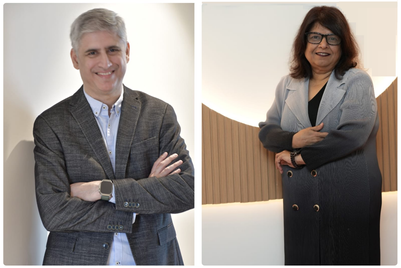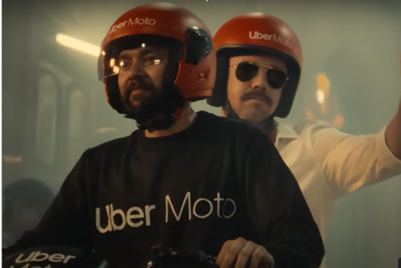“I’m starting with the man in the mirror
I’m asking him to change his ways
And no message could have been any clearer
If you want to make the world a better place
Take a look at yourself, and then make a change.”
Of all of Michael Jackson’s incandescent talents, it’s his deftness of touch as a lyricist—like with the lines above—rather than his incredible voice or moves that usually moves me.
This past year—aptly, 2020—I had occasion to reflect more than usual, and to see if hindsight could indeed be 20/20.
The reflection—on how to make the world of advertising a better place—is not something I’ve indulged in for the first time. Nor is it the first time I looked inward to find a starting place to help make that change.
I’m not usually given to grousing about things. Lately, though, there is something that is beginning to irk me. The number and the shrillness of 'legendary' voices pointing out all that ails advertising seems to have grown manifold in recent times. I don’t know if it’s yet another consequence of the pandemic, but every day, without fail, on every continent, there are a few outsized personalities—now no longer an active part of the ad business except as critics, it seems like—who have taken it upon themselves to tell those of us in the thick of it about all that we are doing wrong.
My questions to them are these: if you had all this wisdom all along, and your reputation was as influential as the one you seem to be wielding now, then what prevented you from righting all these wrongs while you were still actively working with ad agencies and networks? Why do we have a messed-up industry as your legacy? And if, indeed, all was hunky-dory while you were in charge, then clearly you did a lousy job of nurturing and mentoring the next generation—us, in a word—who, in your opinion, can’t fix a light bulb to save a life.
The good thing about these questions is it reinforced two things to me: we are the people we are waiting for. And if we have to make the world of advertising better, it can only happen with the collective will and action of those who are currently active in it, much as the “well-meaning” but never-ending stream of invective from the legends may show us the mirror.
The resolution, therefore, to initiate change—starting with and started by me—has perhaps never been stronger than this year.
It’s because I’ve confronted myself a lot more this year, even without a mirror.
Mistakes and failures make up most of my life, especially on a daily basis. I’d guess that about 95% of the ideas I come up with never see the light of day. And while I have not become inured to them, I have not taken up the task of acting decisively enough on them on occasion.
In 2020, there’s one big mistake I made that I ‘fessed up to, even if it was only to myself.
I must mention that I’ve not won any awards in my life (except as a rookie copywriter almost 25 years ago). I don’t have any great credentials as an “influencer.” I’m not one given to fancy titles (even though the irony is not lost on me that I have a short paragraph as my job title these days). I’ve believed throughout that it’s not authority but the influence you can wield as a thinker, doer and leader that persuades others to want to do the right thing, to do better.
This year though, I was shown the mirror about the limits of my influence. In the context of our industry, I believed I could influence actions and outcomes that could overcome the constraints of the status quo, of a comfort zone at the nexus of bias, cliques and personal ambitions. And I came up short.
The reckless optimist and the inveterate strategist/creative in me came together again though, luckily enough for me.
And I’m more resolute than ever in taking on “the man,” in relentlessly showing the mirror—to myself and to others who might look into it only to preen, not to reflect.
I’m naïve, but not so naïve that I can’t see the limits to this approach.
But my #AdviceToSelf (and to any others who care to read this) is this: there are, as evidenced by the “legendary cribbers” enough and more people who are ever ready to point out what the problems are. And we have plenty of problems.
The coming reckoning around data usage is only the most recent one. As I am wont to say, until now the worst that we’ve been accused of is immorality (a badge we’ve worn proudly, I daresay). With the data age, we now stand accused of illegality (not a badge of honour, I can tell you).
We are neither attracting nor nurturing the best talent there is out there.
We have entitled veterans at the helm in many places whose main focus is to write their swan song (their dubious credentials as lyricists notwithstanding).
We have a revolving door of marketing leadership at most clients who compound our own woes around limiting ourselves to being commodity service delivery agents rather than partners in solution creation (because creativity still is our finest talent).
And then there’s all the ego, greed, envy, shadow-chasing on a daily basis that dogs and confounds our work.
So yes, we do have enough to fill and have our cup of woes overflowing.
But if you’re going to join the ranks of the problem identifiers, I would like to point out that’s a self-defeating proposition.
As a creativity-driven business, our best ability is to be problem-solvers.
One of my mentors once asked me, “So you’re telling me that you’re setting out to create ideas that can persuade thousands, if not millions, of people and yet you can’t persuade your colleagues to see your point of view?”
That piercing question illuminates my path every day. I use it to look at everything, from “office politics” to management questions, from client briefs to scenario creation, through the same lens: of creativity as the tool to solve problems.
I urge you—especially the ones who are still very much part of the industry, regardless of rank, and not just “thought leaders”—to try it out.
I, for one, am starting out again with the man in the mirror.
(The author is CEO, Dentsu Solutions, India)




.jpg&h=334&w=500&q=100&v=20250320&c=1)
.jpg&h=334&w=500&q=100&v=20250320&c=1)



.jpg&h=334&w=500&q=100&v=20250320&c=1)
.jpg&h=334&w=500&q=100&v=20250320&c=1)


.jpg&h=334&w=500&q=100&v=20250320&c=1)

.png&h=268&w=401&q=100&v=20250320&c=1)






